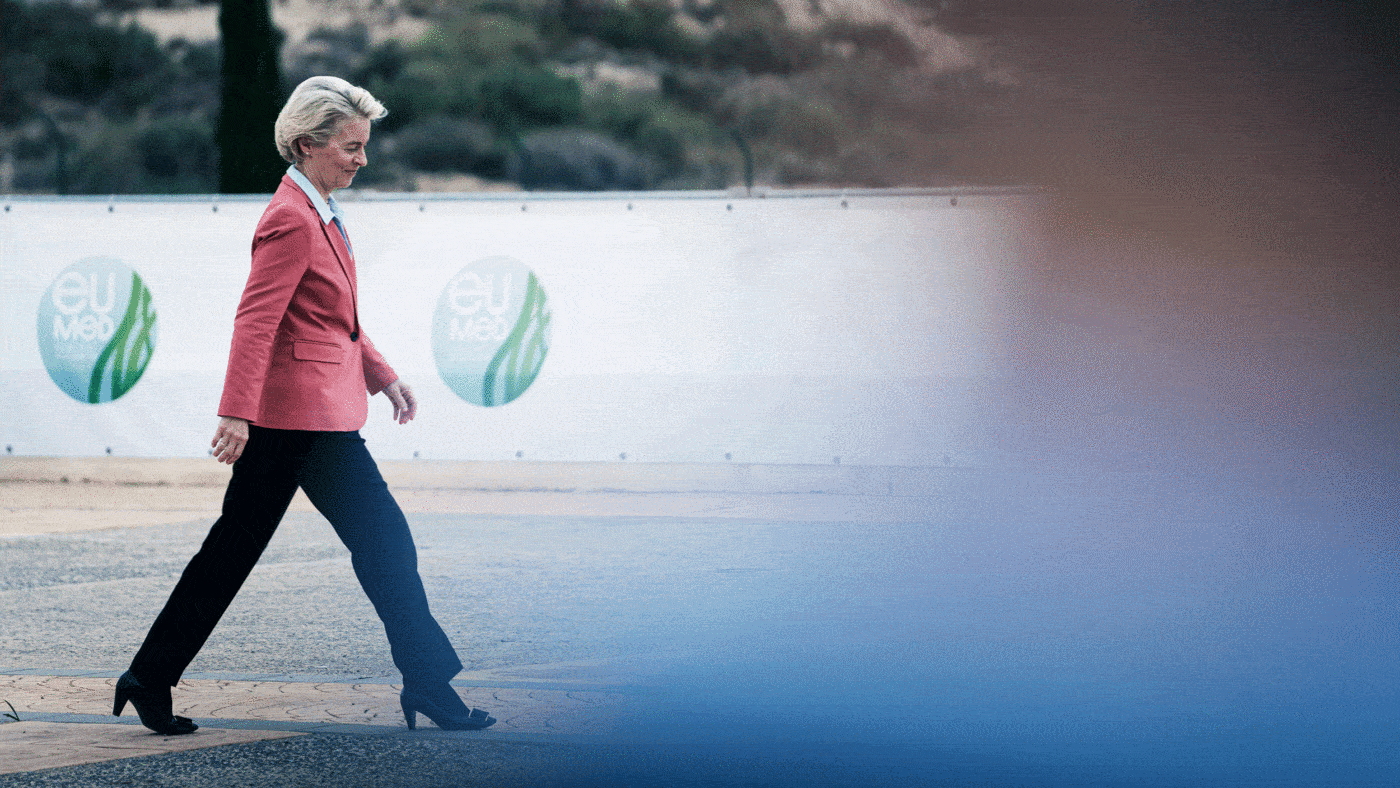Free trade was once at the centre of the European project. Indeed, the United Kingdom, Denmark, and many other northern European nations joined the European Community for that very reason. The vision of a stronger together trading block that would open to the world was widely accepted. However, liberal economists and political Eurosceptics have long doubted the EU’s true motives when it comes to promoting free trade – and last week the mask finally slipped.
During a speech at the College of Europe in Bruges, Commission President Ursula von der Leyen outlined what has been dubbed by some as her ‘Europe first’ approach to trade. Whilst criticising the United States for its generous green subsidy programme, which will grant American families and businesses money to invest in emerging clean technologies, she claimed that Europe would have to rethink its trading relationship with the United States.
In her speech to students at the elite finishing school for eurocrats, von der Leyen said, ‘The new assertive industrial policy of our competitors requires a structural answer.’ She added, ‘Our state aid frameworks exist to preserve our precious Single Market. But if investments in strategic sectors leak away from Europe, this would only undermine the Single Market. And that is why we are now reflecting on how to simplify and adapt our state aid rules.‘
In effect the Commission President has signalled that the EU will well and truly turn its back on free trade, and has ushered in a new era of high tariffs and state subsidies. If the European Union is to compete, goes the logic, then it must act in the same way as its competitors. The view in Brussels for some time has been that in the age of Chinese state-run enterprises and American protectionism it’s time for the EU to act tougher on third countries.
This all comes after a recent clash with the United Kingdom over mutual recognition of standards. Rather than accepting that the UK is capable of creating trustworthy regulations for itself, the Commission instead demanded adoption of the same standards.
This is in line with the vision of many in Brussels to turn the European Union into a so called ‘Regulatory Superpower’. Critics of this proposal are accused of endangering European citizens – but the reality is that the notion of being a ‘Regulatory Superpower’ is an early defence for further protectionist measures.
What proponents of the EU as a ‘Regulatory Superpower’ naively assume is that all other standards and regulations not set by the European Union are automatically inferior – as though Japan, Canada, or New Zealand are especially unsafe nations.
Von der Leyen’s swipe at the United States, and the emergence of a ‘Europe first’ trade policy has not been universally welcomed in Brussels. President of the European Parliament Roberta Metsola, MEP for Malta, hit back against the idea of a trade war with America. ‘Do we enter a subsidy war? I would very much caution against, but I fear when I see an increase in protectionist angles…” she said at a Politico dinner.
Yet the voices for true free trade in Brussels are fast diminishing. Since the United Kingdom’s exit, discussion of ambitious free trade agreements, and slashing regulation has been relegated to the fringes. Even the traditionally liberal ‘Renew Group’ in the European Parliament has been overrun by protectionist voices – with French President Macron’s own party leading the charge. Liberal free trade and economic policies have fallen out of favour – and it is difficult to see a way back.
Click here to subscribe to our daily briefing – the best pieces from CapX and across the web.
CapX depends on the generosity of its readers. If you value what we do, please consider making a donation.


